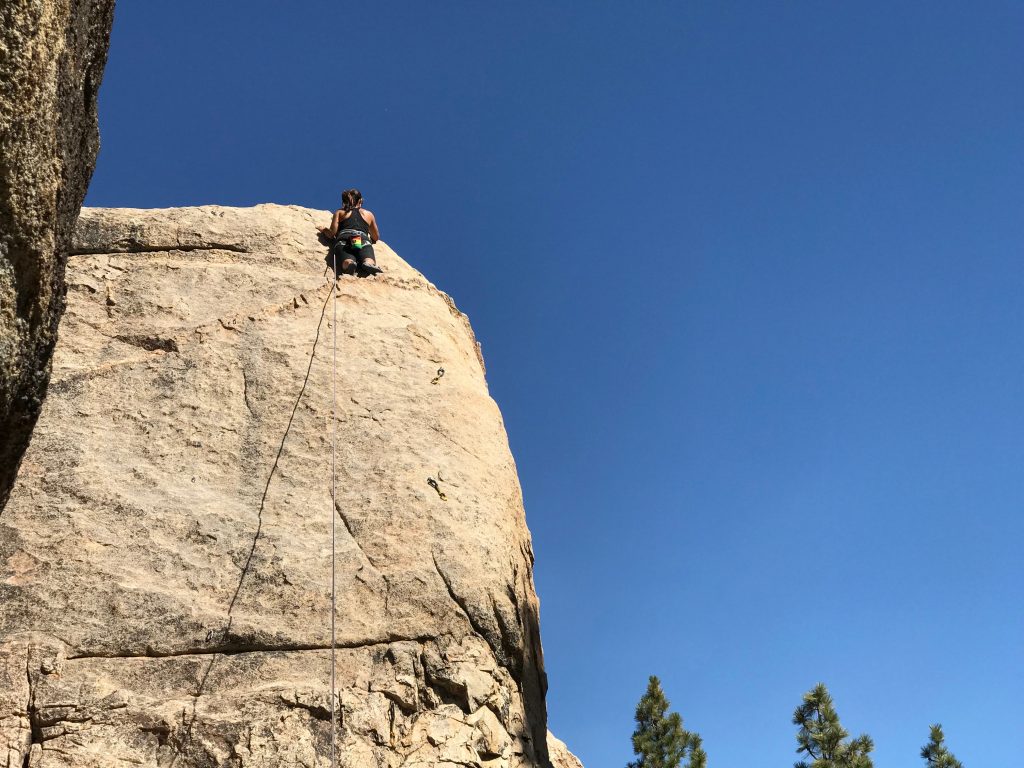Ask any ambitious, hard-working person how burnout feels in their jobs or careers and they’d tell you it’s soul-crushing.
Thankfully, we’ve gotten better as a culture at detecting the symptoms of work-related burnout. But what about fitness burnout? Is it even a thing?
Yes, fitness-related burnout is a real, and it can happen to anyone who is remotely passionate about fitness and has been at it for some time. It slowly and silently creeps in until finally it turns into a full-fledged three-headed monster that manifests either as:
- Physical and emotional exhaustion
- Pain
- Chronic fatigue
- Irritability
- Poor performance
- Feeling incompetent
- Detachment
- All the above
The Telltale Signs of Fitness Burnout
While it’s normal to fall into a rut and get bored with your workout routine, let’s not confuse boredom with burnout. The two are very different and must be treated differently.
Similarly, what feels like overtraining might actually be a symptom of burnout, which is why we need to understand what burnout actually looks like in order to treat it effectively.
Boredom can be amended with a more fun and engaging activity. Overtraining can clear up after a deload week or taking several weeks off the hard training. But burnout feels like you’re running on an empty tank no matter how much “off” or deload weeks you take.
So how can you tell if your fitness routine is headed toward burnout ville? Here are three telltale signs.

Physical and emotional exhaustion
This type of exhaustion can come in two forms – the physical or the emotional.
- Chronic fatigue (Physical): Fatigue slowly snowballs into feelings of low energy, depletion, and a sense of dread. If you’re starting to dread or resent your training, are constantly tired or depleted of the energy necessary to complete your workouts, this is a good indication that you’re burning out.
- Constant stress and anxiety (emotional): Training shouldn’t stress you out; it should be enjoyable to some degree. Some days aren’t great but for the most part you enjoy your time in the gym. Burnt out people live in a constant state of anxiety. They stress about every meal or every workout and it starts to take over their quality of life.
I see emotional burnout occur in those that are constantly in competition prep. Signing up for 4-5 meets a year is cool, but your body and mind needs to rest from the grueling work of prep season. Meal prep Sundays, counting macros, weighing food, training 5-6 days a week, and essentially spending all your resources on the training, preparation for training, or resting up from training is a fast road to burnout.
This kind of dedication is totally fine in-season but if it’s starting to add more stress or anxiety into your life, it may be time to re-evaluate.
Detachment and loss of enjoyment
Anyone who has “checked out” mentally from their jobs knows exactly what this feels like. You start looking for reasons to skip your workouts or start to dread going to the gym.
This is not the same as being lazy or difficult. This usually comes after months, maybe years, of tackling a specific goal non-stop. That goal (let’s say it’s reaching a certain body fat percentage) used to drive you and get you excited to go to the gym. But after training hard for months you start finding yourself looking for more reasons to ditch the workout or do something else entirely.
You may not love every second of training every time, but if you are starting to resent it more than anything, then you, my friend, are burnt out. Time to move on to something else for a while.
Pain or illness
What we feel on the inside can manifest into symptoms of pain in our bodies, so it serves us to pay attention to any sudden (or chronic) pain or sickness when we’re in burnout mode.
Consider all the times you were under immense stress at work and how it affected your physical health. Perhaps you were getting sick all the time and had to call out repeatedly. Or you were experiencing such high anxiety you’d end up with panic attacks or heart palpitations.
These symptoms are subconscious alerts that something isn’t right, so pay attention. This may come as overtraining symptoms for most people, like declining performance or feeling drained all the time. But if taking a few days off or doing a deload week hasn’t helped then you’re likely past the state of overtraining and in full-on burnout mode.
How To Deal With Burnout
I wish I had an easy framework to help people with burnout, but unfortunately, it may take some trial and error. What works for one person may not work for you, and it may take weeks if not months to fully recover. Again, it depends.
However, we can take a few steps to help us on our path and get us to love exercise again.
Make recovery and restoration your #1 priority
The biggest thing I see with burnt out trainees is that they’re in desperate need of recovery. Sleep consistently for 8-10 hours per night, prioritize self-care on a weekly if not daily basis (meditation, baths, massages, pampering, etc), and keep up your good habits of eating well and moving daily. This is the minimum requirement to get you out of burn out.
Have a life outside of the gym
When we’re committed to a goal, it’s totally normal to revolve your life around the gym. Our gym partners become friends, our training sessions turn into our social time, and before we know it, we live and breathe the gym even when we’re away from it.

Do something different
When you are recovering from burn out you need to get yourself outside the gym walls and reconnect with other people, experience new things, and give yourself a mental holiday from fitness-related activities. Stop following all those fitness accounts that make you feel like you have to be training right this second, and go, you know, talk to people in real life.
I know this sounds ridiculous but sometimes we get so laser focused that we forget there’s a whole other world that exists outside our workouts.
Set clear boundaries
Setting boundaries is not selfish; it’s absolutely necessary for your wellbeing. People who work in the fitness industry have a hard time with this because not only do we work in fitness and therefore have to think about it daily, but we also want to keep ourselves in shape so it almost feels like we’re constantly thinking about or doing fitness.
Whether or not you fall into this category, you need to set boundaries. Create time for when you’ll do fitness-related things and leave it there when it’s done. For example, if you are a personal trainer, you might schedule your own workout after training clients, and maybe once a week you block off an hour to catch up on reading or studying fitness-related material pertinent to your job. But outside of that, you don’t discuss workouts, exercise science, or even so much as peek through a fitness business account. Set boundaries with yourself and be present in your life.
The longer you’re in the fitness game, the higher your chances for burn out. I speak from experience as I’m currently in a burn out phase and have to remind myself that it’s all temporary. And that’s the thing. Everything we go through is temporary, good or bad. So if you’re deep in the throes of burn out, be kind to yourself and allow yourself to step away from your training or your gym, and take time to explore what you need right now in your life..

